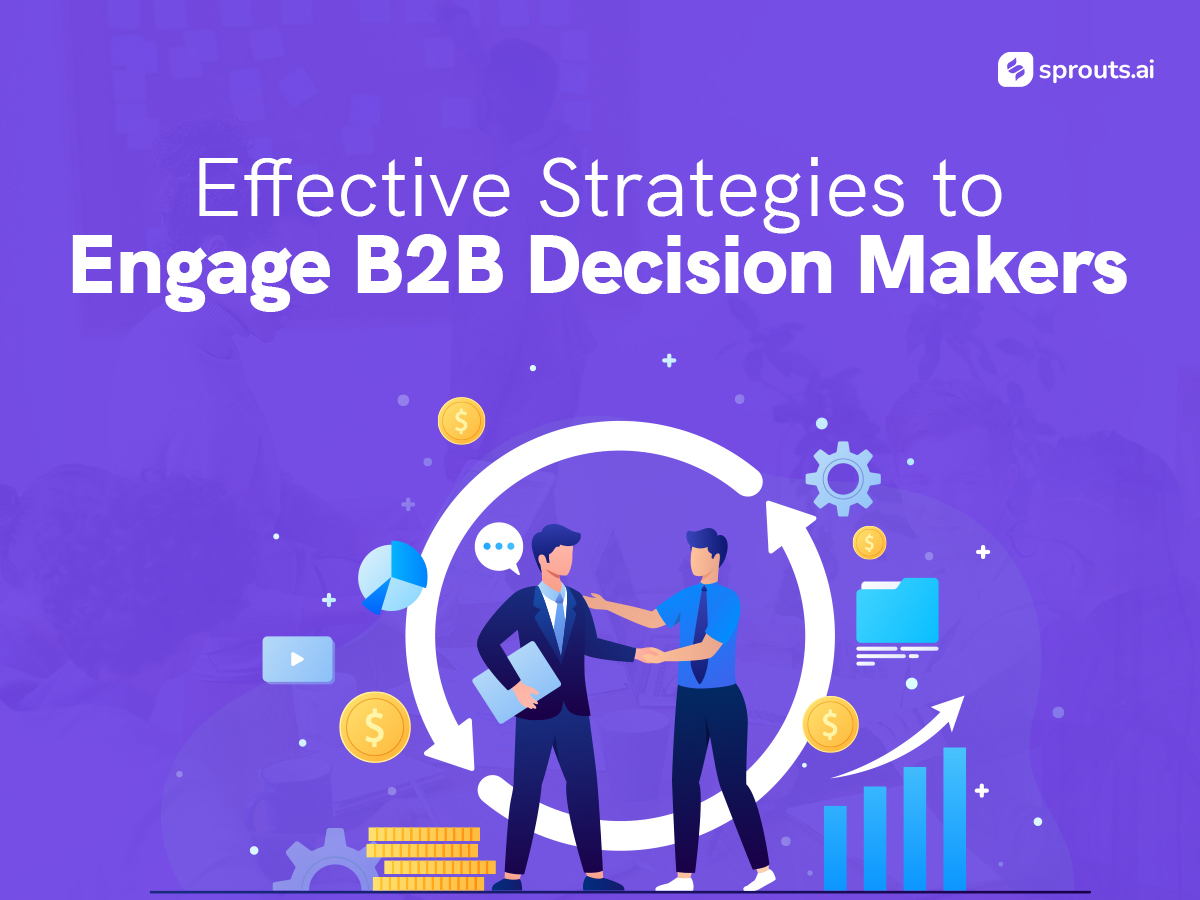The key to success lies in your ability to effectively connect and engage with business decision-makers. These decision-makers hold the power to drive purchasing decisions, making them a crucial target for any sales professional. But, reaching out to them can be challenging, as they are often busy and heavily guarded by gatekeepers. This blog will explore six proven strategies to break through these barriers and create meaningful connections with business decision-makers, boosting sales success.
Research and Personalization
Invest time in thorough research before attempting to engage with any business decision-maker. Understand their role within the organization, their pain points, and their objectives. This information will be invaluable in tailoring your pitch to resonate with their needs. Personalization is the key to grabbing their attention and showing that you genuinely care about helping them find the right solutions.
As you gather information, use tools like LinkedIn, company websites, and industry publications to gain insights into their preferences, interests, and recent accomplishments. Leverage this knowledge in your outreach to craft compelling messages that address their specific challenges and aspirations. Demonstrating that you have taken the time to understand their unique situation can significantly increase the chances of getting a positive response.
Leverage Thought Leadership Content
Business decision-makers are always on the lookout for fresh insights and valuable information. Position yourself or your company as a thought leader by creating high-quality content that addresses the challenges faced by decision-makers in your industry. Publish whitepapers, blog posts, and case studies that showcase your expertise and demonstrate your understanding of their pain points. This approach establishes credibility and can make decision-makers more receptive to your outreach efforts.
Thought leadership content should not focus solely on promoting your products or services. Instead, it should be educational and informative, providing valuable insights to help decision-makers make better-informed choices. By sharing your expertise freely, you position yourself as a trusted advisor rather than a pushy salesperson.
Utilize Referrals and Testimonials
In the B2B world, trust is a crucial factor in decision-making. Leverage the power of referrals and testimonials from satisfied clients to build credibility and strengthen your relationships with business decision-makers. Positive feedback and success stories create a sense of reliability, making it more likely for decision-makers to consider your offerings seriously.
When reaching out to potential clients, mention the success stories of similar businesses that have benefited from your solutions. This social proof validates your claims and can instill confidence in decision-makers. Furthermore, consider asking satisfied customers for referrals, as a recommendation from a trusted peer can significantly influence the decision-making process.
Build a Strong Online Presence
In today’s digital age, having a strong online presence is paramount. Ensure your website and social media profiles are professional, up-to-date, and relevant to your target audience. Share valuable content regularly to keep decision-makers engaged and showcase your expertise. Engage in online discussions and forums where your prospects might be present. A robust online presence can increase your visibility and attract potential business decision-makers.
In addition to creating valuable content, actively participate in conversations related to your industry. Offer insights and solutions to questions and challenges raised by decision-makers on platforms like LinkedIn and industry-specific forums. Engaging in such discussions showcases your expertise and allows you to establish connections with decision-makers organically and authentically.
Establish Long-Term Relationships
Build long-term relationships instead of approaching business decision-makers with a one-time sales pitch. This approach requires patience, but it can be advantageous in the end. Offer value and insights consistently, even if it doesn’t immediately lead to a sale. By nurturing relationships over time, you position yourself as a trusted partner and advisor rather than just another salesperson.
To foster long-term relationships:
- Stay in touch with decision-makers through regular follow-ups and periodic updates.
- Share relevant industry news, insights, and resources that align with their interests.
- Keep track of their needs and challenges, and tailor your communication accordingly.
By consistently demonstrating your commitment to their success, decision-makers are more likely to consider your offerings when the right opportunity arises.
Use Multiple Communication Channels
Business decision-makers have diverse communication preferences. Some prefer email, while others respond better to phone calls or in-person meetings. Use a multi-channel approach to reach out to them. However, remember that quality is always more critical than quantity. Craft personalized and relevant messages for each communication channel, ensuring that you add value to every interaction.
Before reaching out through any channel, ensure you have permission to contact the decision maker. Unsolicited communication can be perceived as intrusive and may harm your chances of building a positive relationship. Respect their time and preferences, and patiently await their response.
Engaging business decision-makers in B2B sales is an art that requires a combination of research, personalization, credibility, and perseverance. By following the strategies outlined in this blog, you can overcome the challenges and create meaningful connections with decision-makers. Remember always to keep their needs at the forefront and provide genuine value through interactions.

